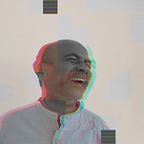Navigating Illusions: Fantasy and Reality in the Delulu Age
In the realm of modern social media trends, the rise of the “delulu” philosophy, which stands for “delusion is the solution,” has captured the attention of Generation Z. Originating from the K-Pop fan community, this concept has gained popularity on platforms like TikTok, where individuals embrace unrealistic and overly idealistic notions, particularly in areas such as relationships and celebrity fandom. While the delulu trend may appear lighthearted and satirical, it is essential to critically analyze its implications through the lens of critical theory and linguistics.
The Delulu philosophy is marked by its ironic and exaggerated form of positive thinking. As this trend gains momentum, it is imperative to scrutinize its implications for individuals and society. While the philosophy may offer fleeting moments of humour, self-confidence, and motivation, a critical analysis reveals potential risks associated with excessive delusion.
Unraveling the Impact on Mental Health
At its extreme, the Delulu philosophy may lead to a delusional disorder, where the boundaries between reality and fantasy blur, impairing daily functioning. By fostering the acceptance and propagation of unrealistic beliefs, delulu might inadvertently contribute to the development or exacerbation of such disorders. This raises a red flag regarding the mental health consequences of embracing a philosophy grounded in fantasy.
Individuals immersed in Delulu narratives might find themselves struggling to distinguish between the fantastical scenarios they embrace and the reality that surrounds them. This inability to discern between the two realms can pose challenges in navigating daily life, relationships, and personal growth.
Critics argue that the Delulu philosophy encourages a passive approach to life. By relying on unrealistic beliefs, individuals may neglect the need for active engagement with reality and addressing systemic issues. This passivity, while providing temporary solace, can impede collective efforts to effect meaningful change and create a more equitable society.
For instance, those steeped in Delulu narratives may find themselves retreating into a world of fantasies, avoiding the harsh realities that demand active participation. This passivity can hinder progress in addressing societal challenges such as inequality, discrimination, and environmental degradation. Advocates for critical self-reflection emphasize the importance of striking a balance between delusion and reality, allowing for both personal growth and active participation in shaping a better world.
Perpetuating Harmful Gender Stereotypes
Digging deeper, it becomes evident that the Delulu trend is not devoid of gendered aspects. The emphasis on relationships, celebrity fandom, and exaggerated fantasies within the Delulu philosophy can inadvertently reinforce harmful gender stereotypes and expectations. This aligns with broader societal pressures on women to conform to traditional feminine roles, perpetuating stereotypes that limit individual agency.
Delusions centred around idealized relationships may inadvertently propagate the notion that a woman’s worth is intrinsically tied to her romantic involvement or adherence to traditional relationship norms. By subscribing to such delusions, individuals unknowingly contribute to the reinforcement of gendered norms, hindering progress towards gender equality and inclusive empowerment.
Empathising with Diverse Experiences
Considering the potential impact of the Delulu philosophy on diverse individuals and communities requires an inclusive design perspective. While some may find humour and motivation in embracing delusions, it is crucial to acknowledge that not everyone shares the same experiences or benefits from this trend.
Inclusive Design encourages us to question whether the Delulu philosophy caters to a broad range of perspectives and takes into account the diverse needs and aspirations of individuals. If the Delulu philosophy reinforces existing power structures or marginalizes certain groups, addressing these concerns becomes paramount. Striving for inclusivity ensures that trends and philosophies contribute to a more equitable and empowering society.
I can't help reflecting on the potential impact of embracing delusions on diverse communities and the long-term implications for societal progress and sustainability is crucial. Excessive delusion, if it leads to disengagement from reality or disregards the consequences of choices, may hinder our ability to address pressing societal and environmental challenges. This calls for a careful balance between optimism and reality, acknowledging the nuances of individual experiences and the broader societal impact. As we navigate the allure of Delulu, let us do so with a conscious effort to shape a future that is both inclusive and sustainable.
